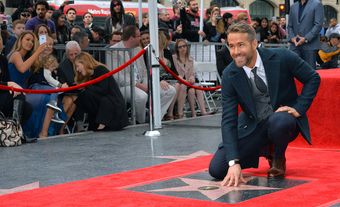Keanu Charles Reeves, actor, producer, director, musician (born 2 September 1964 in Beirut, Lebanon). Keanu Reeves is one of the most recognizable film actors in the world. After early work in Toronto with the CBC and the NFB, he moved to Los Angeles and made a meteoric rise to stardom in such films as Dangerous Liaisons (1988), Bill & Ted’s Excellent Adventure (1989), Point Break (1991) and My Own Private Idaho (1991). He is perhaps best known for action-adventure movies such as Speed (1994), the John Wick franchise and the four Matrix movies. He has been honoured with a star on both the Hollywood Walk of Fame and Canada’s Walk of Fame.

Early Life and Education
Keanu Reeves arrived in Canada as a child and became a naturalized Canadian citizen. He is the son of English-born entertainer and costume designer Patricia Taylor and American-born Samuel Nowlin Reeves, a geologist of Indigenous Hawaiian, Chinese, British and Portuguese descent. After his parents separated when he was three, Reeves’s mother took him and his younger sister, Kim, to Australia, New York City and then Toronto, arriving there when he was five. Through his mother’s subsequent marriages he had three stepfathers: stage and film director Paul Aaron, rock promoter Robert Miller, and hair salon owner Jack Bond.
Over five years, Reeves attended four schools, including Avondale Secondary Alternative School, De La Salle College, and the Etobicoke School of the Arts, from which he was expelled for misbehaviour. Reeves’s lack of interest in academics might have been partially due to dyslexia. He excelled at hockey (he played goal and was nicknamed “the wall”) and dreamed of one day playing for Team Canada. He was also interested in drama and made his first stage appearance at age nine in a theatrical production of Damn Yankees. At 15, he played Mercutio in a production of Romeo and Juliet at Toronto’s Leah Posluns Theatre. Reeves also worked for Aaron as a production assistant before dropping out of high school without obtaining a diploma.
Early Career
While appearing in several stage productions, TV movies and television series, Reeves served as a correspondent on the CBC youth series Going Great (1984). He also starred as a troubled teen in the NFB docudrama One Step Away (1985). He got a big break with a supporting role in Youngblood (1986), a hockey movie starring Rob Lowe and Patrick Swayze that was filmed in Ontario. Reeves then moved to Los Angeles. With his ample charisma and leading man looks, he quickly landed lead roles in TV movies. He also earned critical acclaim in the teen dramas River’s Edge (1986) and Permanent Record (1988) before he portrayed Le Chevalier Raphael Danceny in Stephen Frears’s Academy Award-nominated film Dangerous Liaisons (1988).
Early Hollywood Career 1988–93
Reeves’s first major commercial success came with the role of Ted in Bill & Ted’s Excellent Adventure (1989), co-starring Alex Winter. The offbeat time travel comedy was an unexpected cult hit that spawned an animated television series, Bill & Ted’s Excellent Adventures (1990), and a sequel, Bill & Ted’s Bogus Journey (1991). The part of Ted showcased Reeves’s talent for deadpan comedic delivery, but it also resulted in the popular conception that he, like his character, was dim-witted.
Reeves followed Dangerous Liaisons with supporting roles in other A-list ensemble movies such as Ron Howard’s Parenthood (1989) and Lawrence Kasdan’s I love You To Death (1989), and also made his first foray into action films as an FBI agent in Kathryn Bigelow’s popular Point Break (1991). Sometimes criticized as an actor of limited range, Reeves also seemed determined to break out of the Valley boy stereotype of the Bill & Ted films by taking more challenging roles in art-house films. He played a street hustler in Gus Van Sant’s My Own Private Idaho (1991), Jonathan Harker in the Francis Ford Coppola film Bram Stoker’s Dracula (1991), the Buddha in Bernardo Bertolucci’s Little Buddha (1993), and the villainous Don John in Kenneth Branagh’s film adaptation of Shakespeare’s Much Ado About Nothing (1993).
Peak Hollywood Career 1994–2003
Reeves’s biggest hit to date came with his role as police officer Jack Traven in director Jan de Bont’s blockbuster action movie Speed (1994). In spite of the movie’s success, Reeves rejected an offer to play Traven again in Speed 2: Cruise Control (1997). Instead, he spent the next five years alternating between Hollywood studio films such as A Walk in the Clouds (1995), Chain Reaction (1996) and The Devil’s Advocate (1997), and small independent films such as Feeling Minnesota (1996) and The Last Time I Committed Suicide (1997). He also starred in the science-fiction thriller Johnny Mnemonic (1995), based on a short story by William Gibson and produced in Canada by Don Carmody.
Also in 1995, after turning down a part in the crime drama Heat with Al Pacino and Robert De Niro, Reeves took on the title role in a Manitoba Theatre Centre production of Shakespeare’s Hamlet. The Sunday Times theatre critic Roger Lewis praised Reeves’s performance, writing “He is one of the top three Hamlets I have seen, for a simple reason: he is Hamlet.”
In 1999, Reeves solidified his status as a box-office superstar with his role as Thomas Anderson/Neo in the science fiction blockbuster The Matrix, directed by the Wachowskis. With its ground-breaking special effects and themes that tapped into the tech-obsessed zeitgeist at the turn of the millennium, The Matrix became a global hit and a major media franchise. Reeves starred in two sequels released in 2003 — The Matrix Reloaded and The Matrix Revolutions — both of which were box-office hits. He also provided the voice of Thomas Anderson/Neo in the animated Animatrix (2003).
In between the Matrix movies, Reeves starred in a number of middling Hollywood movies, including the sports movies The Replacements (2000) and Hardball (2001), the mystery-thriller The Watcher (2000), the romantic melodrama Sweet November (2001), and The Gift (2000), which earned him favourable reviews for his role as an abusive husband opposite Cate Blanchett.
Later Hollywood Career 2005–Present
The remainder of Reeve’s output from 2005 on has consisted of a mix of smaller independent dramas — Thumbsucker (2005), Richard Linklater’s A Scanner Darkly (2006) and The Private Lives of Pippa Lee (2009) — and mainstream Hollywood productions such as the graphic novel adaptation Constantine (2005), the romance The Lake House (2006), the crime movie Street Kings (2008) and the remake of the sci-fi classic The Day the Earth Stood Still (2008).
He also began to show an increasing affinity for action movies. He made his directorial debut with the action-drama Man of Tai Chi (2013), in which he starred. He also starred in the fantasy-adventure movie 47 Ronin (2013) and the action thriller John Wick (2014), about a retired hit man out for revenge. Directed by Reeves’s long-time stunt double, stunt coordinator Chad Stahelski, John Wick became an unexpected critical and box-office success and led to the equally successful sequel, John Wick: Chapter 2 (2017). Reeves took unconventional roles in the horror-thrillers The Neon Demon (2016) and The Bad Batch (2016) and lent his name and voice to a lost kitten sought by Jordan Peele and Keegan-Michael Key in the comedy Keanu (2016).
John Wick: Chapter Three – Parabellum was released in 2019, followed by the long-rumoured Bill & Ted sequel, Bill & Ted Face the Music (2020). In 2021, Reeves re-united with his Matrix co-star Carrie-Anne Moss for The Matrix Resurrections, the fourth film in the franchise. The fourth film in the John Wick franchise was scheduled for release in 2022.
Producing
In 2010, Reeves produced his first movie, the indie drama Henry’s Crime. In 2012 he produced Side By Side, a documentary about the ascension of digital filmmaking and decline of celluloid. It features Reeves interviewing such acclaimed filmmakers as Martin Scorsese, David Lynch, Christopher Nolan and Steven Soderberg. The Hollywood Reporter called it “an engrossing and detailed crash course on the digital revolution.” Reeves then began to produce many of the movies he starred in, including the indie thriller Knock Knock (2015), the crime drama Exposed (2016), the crime thriller Siberia (2018) and the science-fiction thriller Replicas (2018).
In 2014, it was announced that Reeves would produce and star in a television series based on Barry Eisler’s best-selling series of espionage novels about John Rain, an assassin who makes it look as though his victims died of natural causes. As of March 2021, the project had been cast but had not yet begun production.
Personal Life
Reeves has long preferred to keep his personal life private. He resides in Los Angeles and is an American citizen through his biological father. He maintains his Canadian citizenship and passport and is entitled to British citizenship through his mother. Reeves plays bass guitar and in 1991 co-founded the alternative rock band Dogstar. The group enjoyed modest success and released two albums. He also played for a band called Becky but quit in 2005 when he decided he was no longer interested in a music career.
Reeves is a motorcycle enthusiast and has suffered serious injuries in accidents. He co-founded Arch Motorcycle Co. and designed the KRGT-1 custom motorcycle, which was made available for $78,000 in 2014.
Reeves has been romantically involved with several women, including actors China Chow and Parker Posey. His most significant relationship was with actor Jennifer Syme. In November 1999, their daughter, who was to be named Ava Archer Syme-Reeves, was still-born. On 2 April 2001, Jennifer Syme was killed in a car accident. Over the course of his career, Reeves has also mourned the loss of close friends River Phoenix and Patrick Swayze.
Philanthropy and Charitable Pursuits
Reeves has a reputation for generosity. His sister Kim’s fight against leukemia moved him to make large donations to cancer research. The numerous charities he has supported also include PETA, SickKids Foundation, Wildlife Waystation, and Brad Pitt’s Make It Right project.
In recognition of the work done by the special effects and costume design teams on the two Matrix sequels, Reeves arranged for them to receive a large portion of his share of the films’ profits. He also gave the entire stunt team Harley-Davidson motorcycles. When Reeves learned that the family of one of the set builders was in financial difficulties, he gave the man a $20,000 “Christmas bonus.”
Legal Issues and Controversies
In 2008, paparazzo Alison Silva unsuccessfully sued Reeves for $711,974 for allegedly hitting and injuring him with his Porsche. Reeves was cleared of all charges. In 2015, Declan Dale (the alias for filmmaker Gee Malik Linton), director of Exposed, for which Reeves was producer and star, complained that what was supposed to be a serious drama about social issues was being turned into a Keanu Reeves cop thriller. Dale had his name removed from the film.
Honours and Awards
Reeves received his first film award in 1992 when he won the MTV Movie Award as Most Desirable Male Actor for Point Break. He received additional MTV Awards for Speed (Best On-Screen Duo, shared with Sandra Bullock) and The Matrix (Best Male Performance, Best Fight, shared with Laurence Fishburne). His role in The Matrix was awarded the Blockbuster Entertainment Award for Favorite Actor in an Action/Science Fiction Film.
In 2005, Reeves’s work was recognized with a star on the Hollywood Walk of Fame. In 2021, he was inducted into Canada’s Walk of Fame by his Matrix co-star Carrie-Anne Moss.

 Share on Facebook
Share on Facebook Share on X
Share on X Share by Email
Share by Email Share on Google Classroom
Share on Google Classroom



